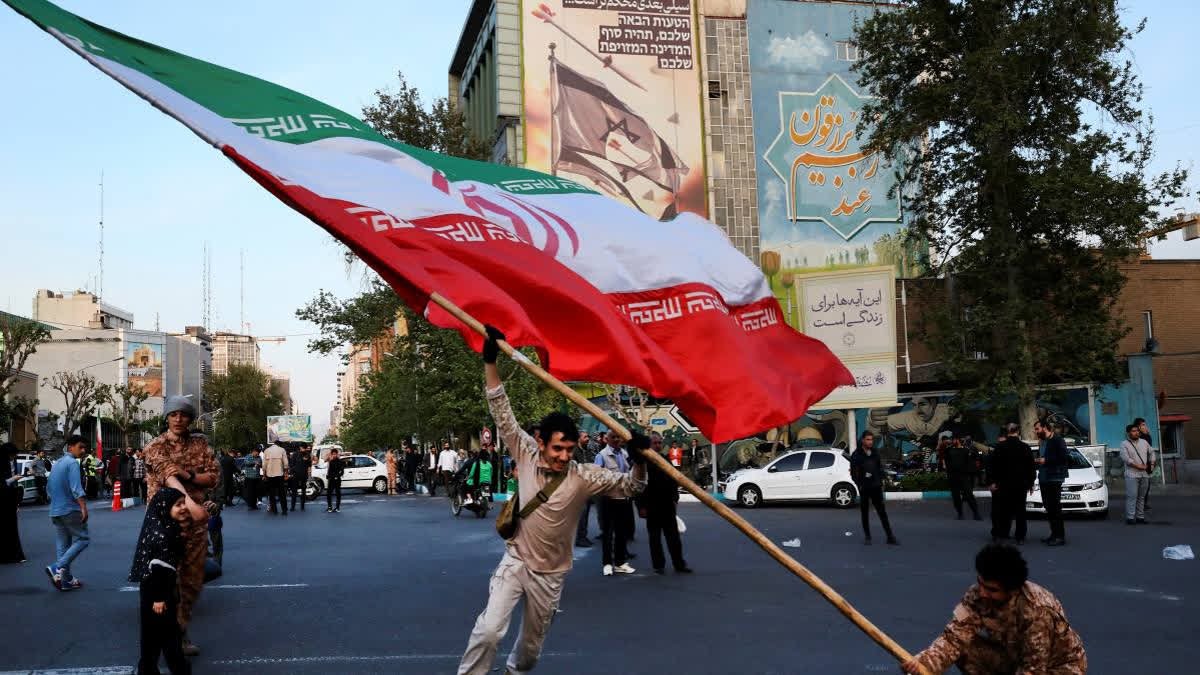Jerusalem: Israel's military chief said Monday that his country will respond to Iran's weekend attack, but he did not elaborate on when and how as world leaders urged against retaliation, trying to avoid a spiral of violence in the Middle East.
The Iranian attack on Saturday came in response to a suspected Israeli strike two weeks earlier on an Iranian consular building in the Syrian capital of Damascus that killed two Iranian generals. It marked the first time Iran has launched a direct military assault on Israel despite decades of enmity dating back to the country's 1979 Islamic Revolution.
The Israeli military said that 99% of the drones and missiles were intercepted, by Israel's own air defenses and warplanes and in coordination with a U.S.-led coalition of partners.
Israeli military chief Lt. Gen. Herzi Halevi said Monday that Israel is considering its next steps but that the Iranian strike "will be met with a response."
Halevi gave no details. The army's spokesman, Rear Adm. Daniel Hagari, said Israel will respond "at the time that we choose."
Both men spoke at the Nevatim air base in southern Israel, which Hagari said suffered only light damage in the Iranian attack.
Prime Minister Benjamin Netanyahu has been huddling with top officials to discuss a possible response. For a second straight day, the government made no announcements on any decisions.
In a conversation with U.S. House Majority Leader Steve Scalise, Netanyahu said that "Israel will do whatever is required to defend itself," the prime minister's office announced.
While Israeli leaders have hinted at retaliation, the government is under heavy international pressure not to further escalate the conflict — especially after the Iranian strike caused such little damage.
The U.S. has urged Israel to show restraint as it seeks to build a broad diplomatic response.
While Maj. Gen. Pat Ryder, Pentagon press secretary, said any response is up to Israel to decide, he added: "We don't want to see escalation, but we obviously will take necessary measures to protect our forces in the region."
Pressed at a briefing about whether such a response would jeopardize stability in the region, Ryder said the U.S. will "stay in close consultation with our Israeli partners, as we have done throughout the weekend. Again, we don't seek wider regional conflict."
The U.S. also has been working in recent years to strengthen ties between Israel and moderate Arab states in an alliance to counter Iran.
Much of that cooperation has been under the umbrella of the U.S. Central Command, which oversees U.S. military operations in the Middle East. Centcom works closely with militaries across the region, including Israel, Jordan, Saudi Arabia and other Arab countries.
